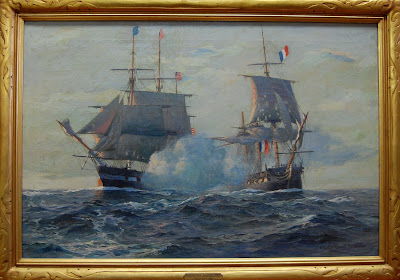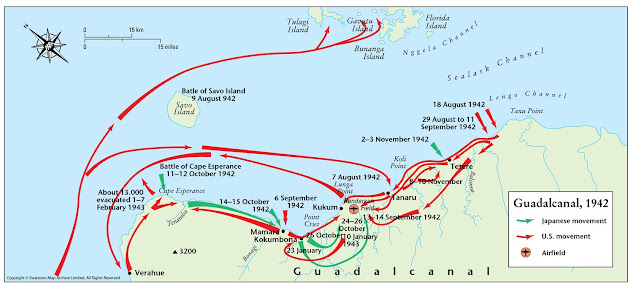From Hero to Penury

On
July 18, 1779, Commodore Abraham Whipple’s squadron, consisting of Continental
frigates Providence, Queen of France
and sloop Ranger, captured the
largest value of prize vessels during the American Revolution. Having left from Boston one month prior, they
sailed east toward the Newfoundland Banks where they met and captured 11
British vessels sailing from Jamaica, later valued in excess of one million
dollars.
Abraham
Whipple was born September 26, 1733, in Providence, Rhode Island, to Noah and
Mary (Dexter) Whipple. Taking to the sea
at an early age, Whipple learned seamanship and navigation and quickly
established himself as a captain plying the West Indies trade routes. But it was during the French and Indian War
(1754-1763) that his courage and daring gained him success as a privateer
operating against French vessel. During
the period 1759-1760, he is credited with capturing thirty-three prizes, a
number that attests to his skill and daring.
As
a ship captain, his reputation continued to grow; however, it was in the years
leading up to the Revolutionary War that Whipple stepped up and became one of
the early leaders of the cause for freedom.
It was on the night of June 9, 1772 when the HMS Gaspee ran aground. Whipple
led a group of fifty men to capture the vessel and burn it to the waterline,
shedding what was arguably the first blood shed in the revolutionary cause.
Upon
the creation of the Rhode Island Navy, Whipple became its first commodore. In the sloop Katy, he immediately sought out the enemy. His first effort was in Narragansett Bay when
he engaged the tender Diana,
capturing and sending her into Providence.
Appointed
to the rank of captain in the Continental Navy by the naval committee on
December 22, 1775, his commission as
captain of the Providence was not
signed by John Hancock until October 10, 1776.
Shortly
after his success off of the Newfoundland Banks, however, his luck ran
out. Sent to augment the defenses of
Charleston, South Carolina, which was being besieged by the British, Commodore
Whipple and his squadron were outmanned and outgunned and ultimately captured
when the city fell.
He,
as the commander of naval forces, was placed on a parole of honor by British Vice
Admiral Arbuthnot and, as he was not quickly exchanged, he saw little action
during the remainder of the Revolutionary War.
Upon
returning to his farm in Cranston, RI, Whipple is unable to pay debt that had
accumulated during his absence as Congress refused to disburse back pay to the
captain who had captured over a million dollars’ worth of trade. When pay was finally forthcoming, he had to
sell the securities at an eighty percent discount. In 1788 he moved with his wife to the
Northwest Territory, present day Ohio, where he is forced to apply to Congress
for a pension. He was awarded a pension
of $30 dollars per month, considered half-pay for a captain at the time.
He
died in Marietta, Ohio, May 19, 1819, at the age of eighty-six.
By John Kennedy, Director of Education

Comments
Post a Comment